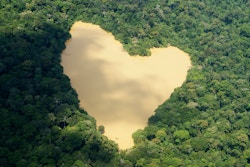Soy Moratorium extension welcome, but stronger action is needed
The announcement to extend the Brazilian Soy Moratorium is good news, but more action is needed as deforestation for soy spikes in other parts of the region.

The Soy Working Group recently announced an unlimited extension of the industry’s ban on deforestation for soy in the Brazilian Amazon.
This is welcome news, as the Soy Moratorium has been perhaps the most successful private sector effort in the world at reducing deforestation for a specific commodity. Nearly 30% of soy expansion occurred through deforestation rather than by replacement of pasture or other previously cleared lands. After the Soy Moratorium, deforestation for soy dramatically decreased, falling to under one per cent of expansion in the Amazon biome by 2014.
Meanwhile, Brazil has managed to double soy production in the same period.
- The soy industry is to be commended for not buying soy from deforested areas in the Brazilian Amazon, but we call on them to apply similarly high standards to the rest of the Amazon, and to other vulnerable ecosystems at risk, says Lars Løvold of Rainforest Foundation Norway (RFN).
No justification
While deforestation rates in the Brazilian Amazon have plunged, other regions have become the new frontiers for agricultural expansion. The Bolivian Amazon, the Gran Chaco in Argentina and Paraguay, the Atlantic Forest and Brazil’s Cerrado regions all continue to suffer from high rates of deforestation. Soy companies have done the right thing by working to protect Brazil’s Amazon from deforestation related to soy production, but there is no justification for these companies to continue to drive deforestation elsewhere.
- After 10 years of the Soy Moratorium we would expect more commitment and the same attitude from the companies towards the rest of the Amazon, and other vulnerable ecosystems at risk, says Løvold.
Read more:
Common conservation standards needed
Other industries connected to deforestation need to act as well, especially the largest driver of deforestation in Latin America, the cattle industry. Even in the Brazilian Amazon, evidence shows that the same landowners who are selling so-called “deforestation-free soy” are sometimes using newly cleared lands to grow other crops or raise cattle. This is a fundamental challenge that can only be addressed by having common conservation standards for all commodities and across landscapes.
No need for deforestation for soy
The success of the Soy Moratorium is a lesson in how joint action by industry leaders can effectively solve a common challenge, and should be replicated across regions and across commodities. Indeed, as the growth of the Brazilian agriculture sector shows, conservation and agricultural growth can go hand in hand. There are more than 125 million hectares of degraded land in the tropics where crops like soy can be grown without threatening native ecosystems, with more than 25 million hectares of previously disturbed lands in the Brazilian Cerrado alone.
Protection of natural resources need not be confined to just one part of one country; ecosystems all over Latin America need it, and need it now.
Contact

Lars Løvold
Special Adviser, Interfaith Rainforest Initiative
(+47) 481 88 148
lars@rainforest.no
